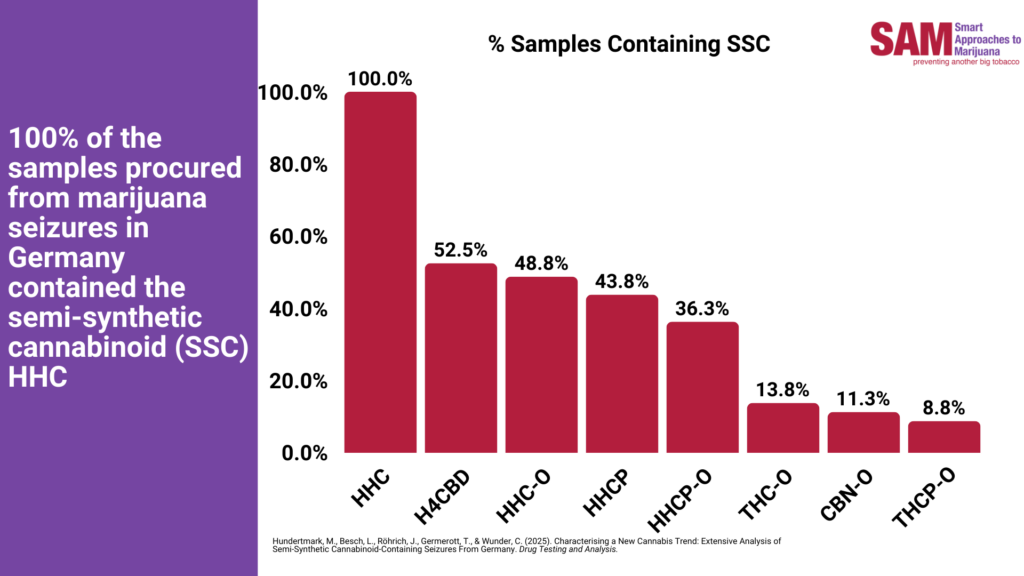
A recent study in Drug Testing and Analysis highlighted the emergence of semi-synthetic cannabinoids (SSC). While Delta-9 THC is known as the “high”-inducing cannabinoid, hundreds of others are also present in the cannabis plant, including CBD. Now, synthetic cannabinoids are being developed, which presents additional health-related risks to marijuana users.
The study, which analyzed 79 SSC-containing samples from 20 seizures of marijuana in Germany, found that these products often contained derivatives like HHC, H4CBD, HHC-O, HHCP, THC-O, and THCP-O. HHC was found in 100% of samples, while H4CBD was in 52.5%. Many of these derivatives were found in a range of products, including marijuana flower, resins, gummies, and vape liquids.
The researchers noted that Delta-8 THC, which is derived from hemp, and HHC were the first two SSCs to appear in the United States. It is reasonable to expect many of these other derivatives to make their way to the United States.
The authors concluded that “the unawareness of constituents in SSC-containing products due to mislabeling in combination with strongly fluctuating HHC contents or so-called ‘blends’ containing SSC-mixtures can pose a risk to consumers.”
In the United States, the loophole in the Farm Bill has permitted the development, sale, and use of semi-synthetic cannabinoids. Until this issue is resolved, new variants will continue to be produced and promoted by profit-driven entities. Recognizing that “these extremely dynamic developments led to the first national bans on HHC and its derivatives in some EU countries beginning in 2023,” the United States should take a similar step and ban these products and their derivatives.